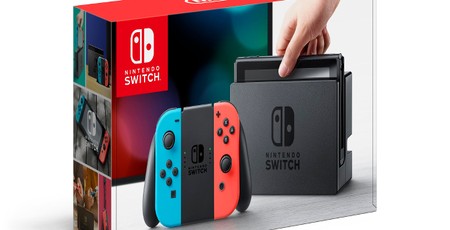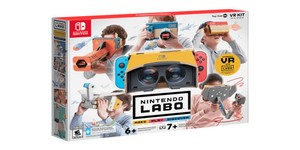GDC report points to growing Switch, waning VR interest
January 25, 2018 | 11:29
Companies: #game-developers-conference #microsoft #nintendo #sony

The Game Developers Conference (GDC) has released its latest 'State of the Industry' survey, revealing growing interest in Nintendo's Nvidia-powered Switch handheld console but waning confidence in the sustainability of virtual and augmented reality.
The sixth report in the series, GDC's State of the Industry is based on a survey sent out to game developers, publishers, and other interested parties ahead of GDC 2018 this March. Its results should give Nintendo hope for the future: 12 percent of respondents claimed to be actively developing games for the Switch convertible tablet-based console, up from three percent last year, with 36 percent of respondents interested in the platform - below market-leading PC at 59 percent and the PlayStation 4 at 39 percent, but above Microsoft's Xbox One family at just 28 percent.
The reason for the increased interest appears to be primarily financial: 76 percent of survey respondents who have already launched a game on the Switch indicated that sales were equal to or better than on other consoles, despite the platform's late launch and comparatively small user base compared to Microsoft and Sony's equivalents.
For gamers eager to see the end of microtransactions, though, there was bad news: Despite considerable vocal protest and calls for legislation against their use in games aimed at children, so-called loot box mechanics - where players can pay real-world money for a chance at a rare in-game item - appear to be on the rise with 11 percent of respondents indicating that paid item crates would be a feature of their next title. Other monetisation strategies will come as little surprise, with 23 percent planning paid-for downloadable content and 22 percent the ability to buy in-game items for real money - the latter differentiates from loot boxes by offering the ability to buy specific items, rather than a randomly-selected item.
Elsewhere in the survey interest in virtual and augmented reality platforms appears to be waning. While 19 percent of respondents said they are working on a virtual reality title, only 17 percent said their next title will be VR compatible. Worse, the industry appears to be raising questions about the long-term sustainability of the VR and AR markets: 29 percent of respondents claimed they do not see VR and AR as sustainable, up from 25 percent the year before.
The full report can be downloaded from the official website following free registration.

MSI MPG Velox 100R Chassis Review
October 14 2021 | 15:04









Want to comment? Please log in.